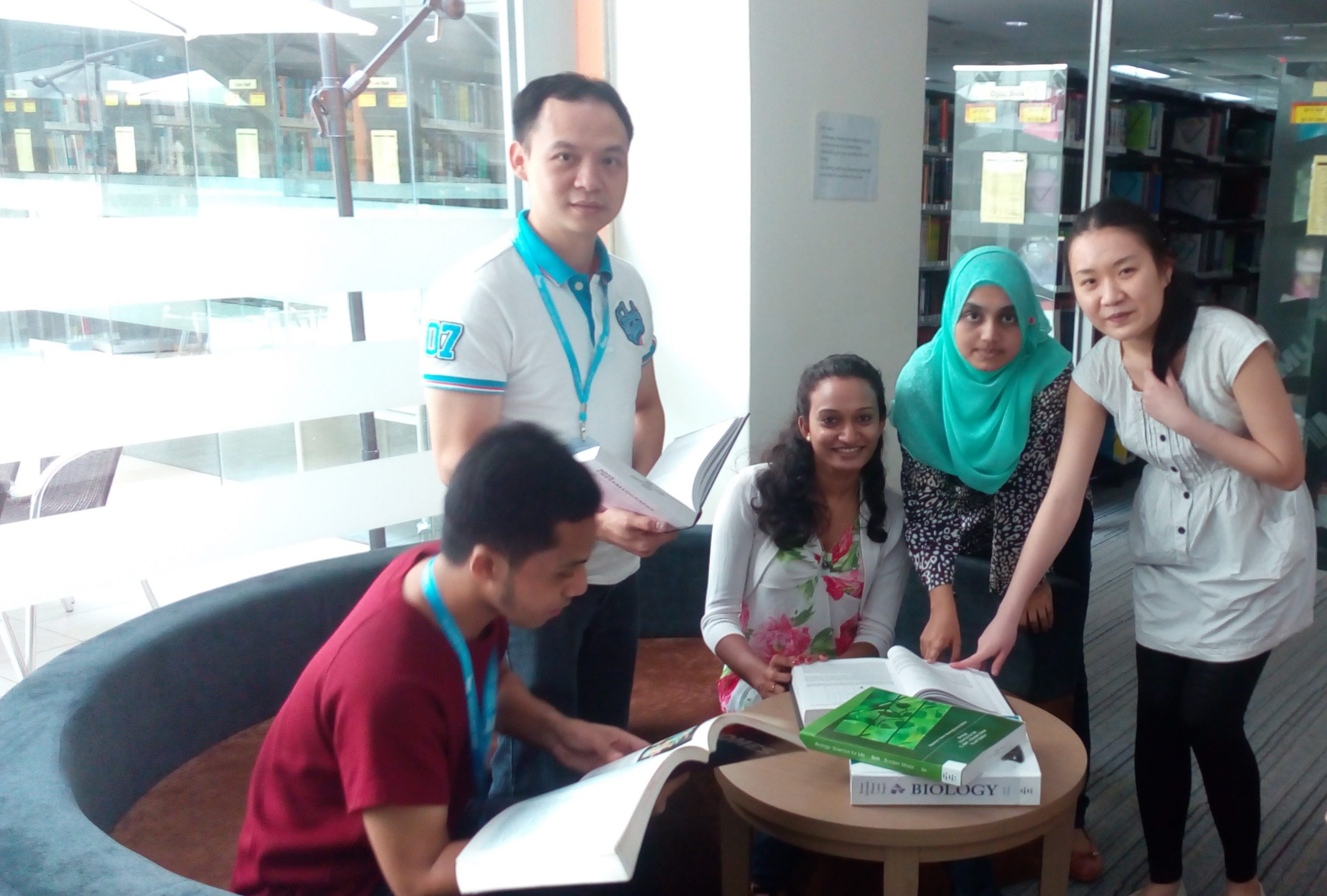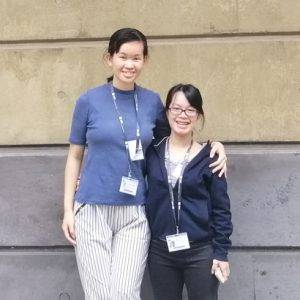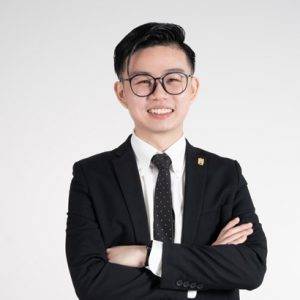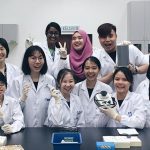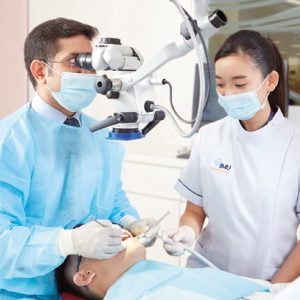21th century is an era with strong emphasis on knowledge-based economy. This by definition suggested that human capital training is the key element for economic growth. The realisation comes in tandem with the introduction of lifelong learning that has been gaining increasing acceptance in the recent years. The proponent of the concept advocated that learning should take place in all stages of life, and that it should be a continuous process of constant upgrading or building of knowledge and competency to meet the needs of employment or personal fulfillment. Fauziah Binti Abdul Manaf, a medical product specialist decided to take on the challenge by enrolling herself into MSc Molecular Medicine at IMU. According to Fauziah, the key factors influencing her decision are the weekend classes and course content. “The programme conducted its classes on weekends and that allowed me to continue my working routine on Mondays to Fridays.” “The programme is relevant to my profession and I am attracted especially by the drug design module, where I could learn about designing drug for a specific disease, and the procedure for clinical trial and patent. This will give me an edge in the pharmaceutical related research and development industry in future.” 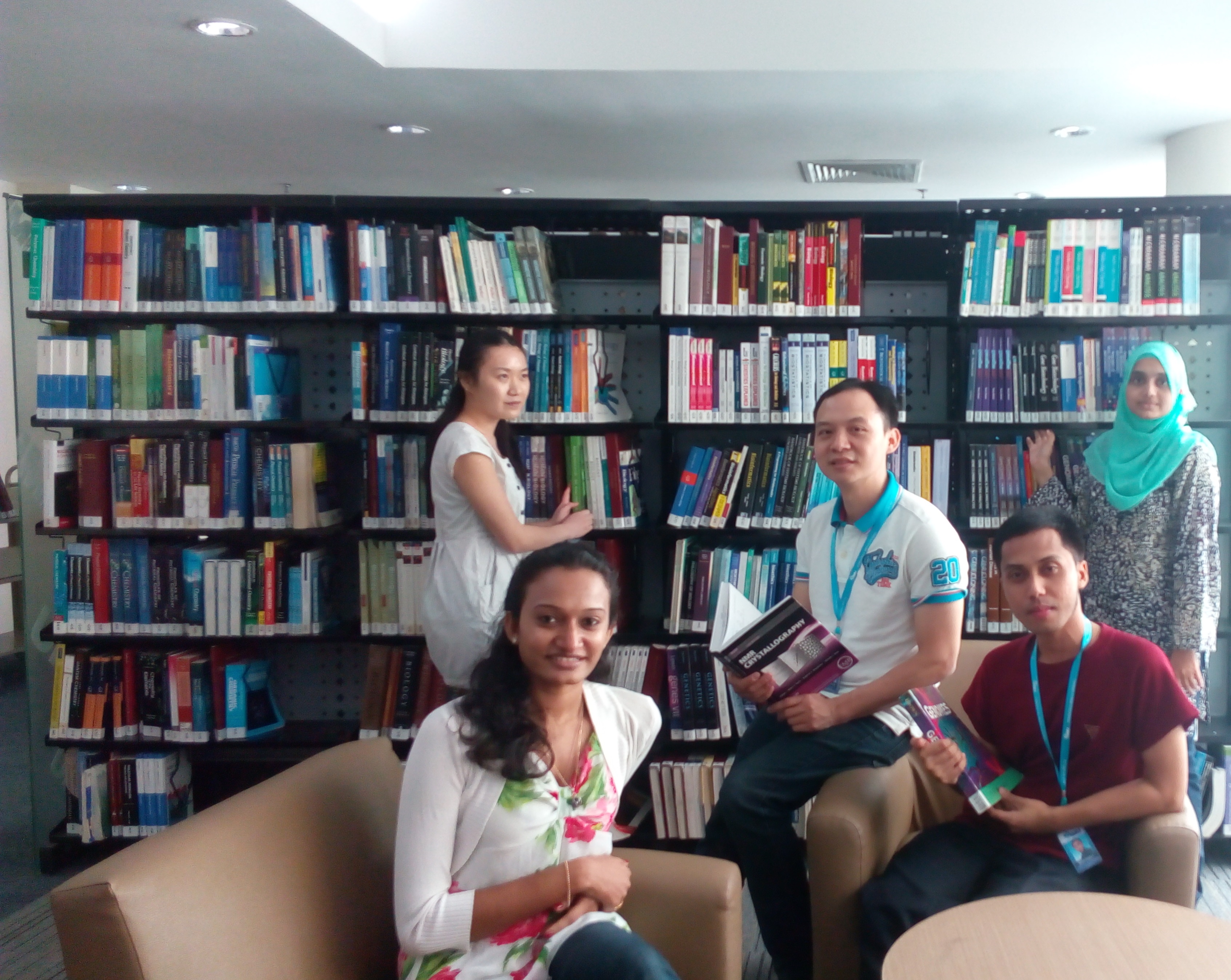 Similar sentiments are shared by Loo Yan Shan, a part time intellectual property executive and patent writer. “Molecular medicine is a suitable course for me, as it involves elucidation of the molecular pathophysiology, microbiological, genetic, epigenetic aspects of diseases using analytical methods, and applications of research such as sequencing of genes and genomes, studying gene expression and function, and studying the genome, proteome, metabolome etc. These are some topics which I had been taught while undertaking my BSc degree on biotechnology. Hopefully, while I increase my experience in this area of interest that new opportunities may arise in the future for me to undertake research, particularly relating to the therapeutic delivery of DNA, RNA, and other biomolecules.” Commenting about lifelong learning, Yan Shan said,”Learning is a lifelong process and it is common (especially overseas) to undertake further studies (proceeding from a degree) even at a later age, according to self-interest, as most of the time, people would realize that their interests lie in another field after gaining some experience and making some comparisons. Adult learning, I would say, could be based on various reasons such as to increase specialisation, to broaden the field of knowledge, driven by curiosity, or possibly to gain additional credible qualifications. I think MSc Molecular Medicine fosters independent learning and enables the participants to identify their specific interests whether in medicine, health sciences or life sciences. “ According to Goh Mun Hon, Senior Medical Laboratory Scientist in Institut Jantung Negara (IJN), joining MSc Molecular Medicine is a tough decision as he needs to balance between work, life and study. However, it is a challenge worth taking as a master degree offers a good job development prospects in his current workplace. According to Mun Hon, “Under my current portfolio, I am encouraged to participate in local medical conferences. The ‘Research Methodology and Scientific Writing’ module had strengthened my skills in report writing and oral presentation. Further, I hope I can integrate the knowledge I obtained from the MSc Molecular Medicine in my daily work and future research.”
Similar sentiments are shared by Loo Yan Shan, a part time intellectual property executive and patent writer. “Molecular medicine is a suitable course for me, as it involves elucidation of the molecular pathophysiology, microbiological, genetic, epigenetic aspects of diseases using analytical methods, and applications of research such as sequencing of genes and genomes, studying gene expression and function, and studying the genome, proteome, metabolome etc. These are some topics which I had been taught while undertaking my BSc degree on biotechnology. Hopefully, while I increase my experience in this area of interest that new opportunities may arise in the future for me to undertake research, particularly relating to the therapeutic delivery of DNA, RNA, and other biomolecules.” Commenting about lifelong learning, Yan Shan said,”Learning is a lifelong process and it is common (especially overseas) to undertake further studies (proceeding from a degree) even at a later age, according to self-interest, as most of the time, people would realize that their interests lie in another field after gaining some experience and making some comparisons. Adult learning, I would say, could be based on various reasons such as to increase specialisation, to broaden the field of knowledge, driven by curiosity, or possibly to gain additional credible qualifications. I think MSc Molecular Medicine fosters independent learning and enables the participants to identify their specific interests whether in medicine, health sciences or life sciences. “ According to Goh Mun Hon, Senior Medical Laboratory Scientist in Institut Jantung Negara (IJN), joining MSc Molecular Medicine is a tough decision as he needs to balance between work, life and study. However, it is a challenge worth taking as a master degree offers a good job development prospects in his current workplace. According to Mun Hon, “Under my current portfolio, I am encouraged to participate in local medical conferences. The ‘Research Methodology and Scientific Writing’ module had strengthened my skills in report writing and oral presentation. Further, I hope I can integrate the knowledge I obtained from the MSc Molecular Medicine in my daily work and future research.”




